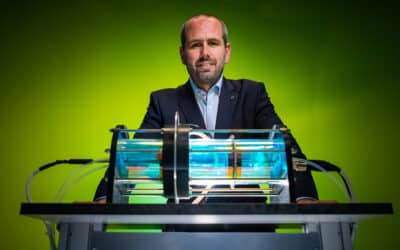Manchester Airport is set to become the first UK airport with a direct supply of low carbon hydrogen fuel.
It has signed a Memorandum of Understanding (MoU) with the two founding partners of HyNet – a government-backed industrial decarbonisation project.
Hydrogen technology is expected to play a key role in decarbonising the aviation sector, with hydrogen-powered aircraft expected to start operating from the mid-2030s for short-haul flights.
The partnership is with Progressive Energy, which develops projects to decarbonise the energy sector, and Cadent, which will build and operate HyNet’s hydrogen pipeline network.
FlyZero estimated that the demand for liquid hydrogen at an airport the size of Manchester could be 6.5 million litres a day by 2050.
“This announcement demonstrates the meaningful action we are taking to ensure we can deliver a carbon-free future for the aviation industry,” stated Chris Woodroofe, Managing Director, Manchester Airport.
“The partnership between Manchester Airport and HyNet is a significant step forward for the future use of hydrogen across the North West, building a more sustainable future for the region.
“By securing a direct supply of hydrogen for our airport, our 60 airlines will be able to make use of this exciting and ground-breaking technology as soon as possible.
“The use of hydrogen will make a significant contribution to the UK aviation sector’s decarbonisation efforts and supports industry partners in reaching net zero.”
Chris Manson-Whitton, CEO Progressive Energy added:
“HyNet will transform the region by the mid-2020s through delivering low carbon hydrogen produced locally at the UK’s first facilities including Vertex Hydrogen and a range of electrolytic plants. We have a huge level of demand for HyNet hydrogen from across the North West and North Wales from a range of sectors stretching from glass and paper to food and drink to consumer goods.
“HyNet will enable the decarbonisation of industry and transport sectors and, by developing a hydrogen economy, is set to generate a £17 billion economic impact for North West England and North Wales, providing a much-needed boost for businesses across the region.
“We are extremely pleased to be working with Manchester Airport to make a significant impact on decarbonising aviation as we all play our part in reaching net zero and combating climate change.”
Manchester Airport – as part of MAG – has a target to make its own operations net zero carbon by 2038.











